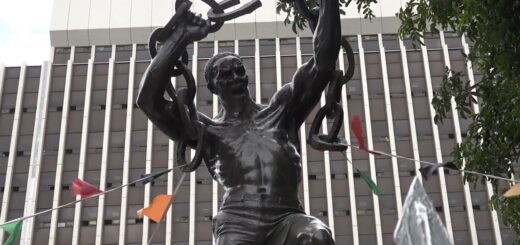UPND Shoult Not Write Off PF
The United Party for National Development (UPND) would be making a grave error if it prematurely writes off the Patriotic Front (PF) as a spent force. While the PF appears to be grappling with significant internal and external challenges, it is far from a political corpse awaiting burial.
What binds the party today is not just nostalgia for its former glory days, but a collective instinct for survival—a force that should not be underestimated.
In the aftermath of the UPND’s 2021 electoral victory, the PF found itself facing an unprecedented crackdown on corruption. Many of its top leaders have either been jailed or are battling criminal charges. Yet, instead of splintering under the pressure, the PF has become more resilient.
This unity is fueled by desperation, a factor that can be politically potent. The party’s narrative of political persecution, however flawed, resonates deeply with its base and helps frame its leaders as victims of a selective justice system.
When former President Edgar Lungu announced his return to politics, he initially claimed it was to “rescue the PF.” More recently, his rhetoric has shifted toward defending his family from what he perceives as unfair prosecution. This pivot to a more personal fight might be read as a sign of weakness, but in reality, it underscores the lengths to which Lungu and his loyalists are willing to go to protect their interests.
As history has shown, political actors backed into a corner can become dangerously unpredictable, and the PF’s determination to escape legal scrutiny may lead to an aggressive resurgence.
Despite its control of the state machinery, the UPND has not delivered on several fronts, and the party’s vulnerabilities are growing. Zambia’s economic hardships—high inflation, unemployment, and a depreciating currency—are gnawing at the patience of ordinary citizens.
For the average Zambian, daily struggles like the rising cost of living may soon overshadow the UPND’s broader policy successes. Economic discontent, whether justified or not, often becomes a fertile ground for opposition parties to exploit, and the PF is keenly aware of this.
Moreover, the UPND has failed to empower its grassroots base in a manner that ensures loyalty come 2026. Many party members who worked tirelessly to secure the UPND’s 2021 victory now feel disillusioned, and some might sit on the sidelines in 2026. This internal dissatisfaction could leave the UPND vulnerable to defections, or worse, apathy within its own ranks.
The UPND also faces growing isolation from influential regional players. Relations with neighboring Zimbabwe and South Africa have not flourished under the current administration, and this coolness could have deeper ramifications.
Business interests within these countries may seek to install or support a more favorable Zambian leader who would protect their investments. While Zambia’s foreign policy may seem like a peripheral issue to the average voter, the power dynamics at play in southern Africa cannot be ignored.
Perhaps the most critical foreign relationship, however, is Zambia’s with China. Since the UPND came to power, Chinese investment in the Zambian economy has visibly slowed. While a deliberate effort has been made to reset this relationship, Beijing remains cautious, adopting a “wait and see” approach. It would be naive for the UPND to assume that China will remain neutral in the next election.
The PF, which fostered strong economic ties with China during its tenure, could very well benefit from renewed Chinese interest. With billions in Chinese loans and investments at stake, Beijing might quietly back a PF revival if it sees an opportunity to regain a foothold.
One significant miscalculation the UPND is making is underestimating Fred M’membe, leader of the Socialist Party. While M’membe’s political presence may seem marginal today, his influence could grow as we approach 2026. If M’membe were to align with the PF—or even simply draw enough votes away from the UPND—he could complicate the ruling party’s path to securing the 50%+1 majority needed to avoid a second-round election.
In a runoff scenario, opposition parties would almost certainly band together to oust the UPND. Deals would be struck, positions promised, and alliances forged, all aimed at toppling the incumbent.
The UPND’s strategy should be to win decisively in the first round, but if M’membe or other opposition figures manage to split the vote, the ruling party may find itself outflanked and outmaneuvered.
The UPND’s biggest threat is not an immediate collapse of its political fortunes, but rather a slow erosion of support from within and outside the party. Time is not on their side. In politics, perception often matters more than reality. If the public starts to perceive the UPND as out of touch, ineffective, or isolated on the international stage, the PF and other opposition forces will pounce on these weaknesses.
To believe that the PF is irrelevant or defeated is to ignore the lessons of political history. Parties in survival mode are capable of astonishing comebacks, especially when external forces—both regional and global—are at play. The UPND must treat the PF as a viable contender, not just as a relic of the past, lest they find themselves blindsided by a revitalized opposition when it’s too late.
A day may seem like an eternity in politics, but 2026 is fast approaching, and if the UPND doesn’t adjust its tactics, it may find itself out in the cold. Victory should never be assumed, especially when your opponents have everything to lose.
The UPND would do well to heed these warnings. In the high-stakes chess game of Zambian politics, complacency is a luxury they cannot afford.








